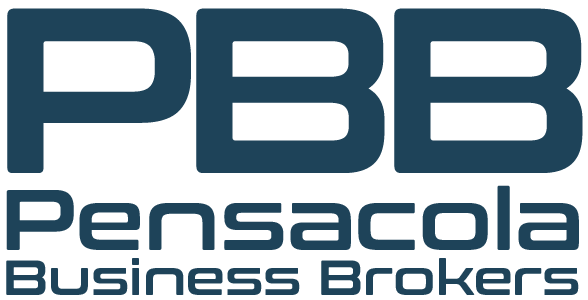If you’re preparing to sell your business in Pensacola, having a comprehensive due diligence checklist for selling a business is essential for a successful transaction. Many sellers focus on valuation and finding buyers but are caught off-guard by the extensive documentation buyers request. Being unprepared can delay your sale by months, reduce your leverage, or kill deals entirely.
Understanding the Due Diligence Process
Due diligence is the period after a buyer submits a letter of intent but before closing, where they verify everything about your business. Think of it as the buyer’s investigation phase—they’ll examine your financials, operations, legal compliance, and every other aspect.
Standard due diligence timeline in Pensacola:
- Smaller businesses ($100K-$500K): 30-45 days
- Larger operations ($1M-$3M): 60-90 days
Your job as a seller is to make this process smooth and transparent while protecting your interests. Using a proper due diligence checklist for selling a business ensures you’re prepared.
Financial Documents: The Foundation
Financial documentation is the cornerstone of any due diligence checklist. Buyers need to verify your business performs as represented.
Essential financial documents:
Tax returns (last 3-5 years):
- Business tax returns (1120, 1120S, or 1065)
- Personal tax returns of all owners
- Sales tax returns and remittance records
- Payroll tax returns (941, 940)
- Property tax records
Financial statements (last 3-5 years):
- Profit & loss statements (monthly and annual)
- Balance sheets
- Cash flow statements
- General ledger and trial balances
- Accounts receivable/payable aging reports
Bank and revenue records:
- Business bank statements (last 12-24 months)
- Merchant services statements
- Customer contracts and agreements
- Top 20% customer list by revenue
- Sales records by product/service category
Expense documentation:
- Vendor contracts and major supplier list
- Utility bills and occupancy costs
- Insurance policies and premiums
- Marketing and advertising expenditures
Debt and liabilities:
- Outstanding loan agreements
- Equipment financing details
- Credit line documentation
- Pending litigation or claims
- Warranty obligations
For Pensacola businesses with seasonal patterns (tourism, marine services, retail), prepare historical data showing consistency in fluctuations.
Owner compensation details:
- Breakdown of total owner compensation
- Personal expenses run through business
- Add-back schedule for discretionary expenses
- Documentation supporting all add-backs
Operational Documents
Your due diligence checklist must include operational documentation so buyers understand how your business runs day-to-day.
Required operational documentation:
Systems and procedures:
- Standard Operating Procedures (SOPs)
- Employee handbook and policies
- Organizational chart
- Training manuals and materials
- Quality control procedures
Physical assets:
- Equipment list with ages and conditions
- Maintenance records and schedules
- Vehicle titles and registration
- Inventory records and valuation method
- Recent appraisals of major assets
Facility information:
- Lease agreement with terms and renewal options
- Property deed (if you own real estate)
- Building inspection reports
- Environmental assessments
- Zoning compliance documentation
Technology and systems:
- Software licenses and subscriptions
- Website ownership and hosting details
- Domain name registrations
- Customer database information
- IT infrastructure documentation
Customer and Marketing Information
Every due diligence checklist for selling a business should include customer and marketing documentation to give buyers confidence in revenue streams.
Customer documentation:
- Customer list with contact information
- Customer contracts (especially recurring revenue)
- Historical customer retention rates
- Top customer concentration analysis
- Customer acquisition costs and methods
Marketing materials:
- Brand guidelines and assets
- Marketing plan and budget
- Website analytics and traffic data
- Social media accounts and engagement metrics
- Advertising campaign results
Sales documentation:
- Sales process and pipeline management
- Lead generation sources and costs
- Sales team structure and compensation
- Historical conversion rates
- Pending proposals or quotes
Employee and HR Records
Your team is a critical asset. Include these HR items in your due diligence checklist.
Human resources documents:
- Employee list with titles, salaries, and tenure
- Employment contracts and non-competes
- Benefits package details and costs
- Workers’ compensation insurance
- 401(k) or retirement plan documents
- Employee turnover history
- Pending HR issues or complaints
- Training and development programs
Legal and Compliance Documentation
Legal due diligence ensures the business has no hidden liabilities. This section of your checklist is critical.
Essential legal documents:
Business formation and governance:
- Articles of incorporation or organization
- Operating agreement or bylaws
- Stock certificates and cap table
- Shareholder or partnership agreements
- Business licenses and permits
Contracts and agreements:
- Vendor and supplier contracts
- Customer contracts and terms
- Lease agreements
- Loan documents
- Partnership or joint venture agreements
- Licensing agreements
Intellectual property:
- Trademark registrations
- Patent documentation
- Copyright records
- Domain name ownership
- Trade secret protections
Compliance records:
- Industry-specific licenses
- Health department permits
- Environmental compliance reports
- Safety inspection records
- Insurance certificates and claims history
For Pensacola businesses in regulated industries (food service, marine, healthcare), ensure all local, state, and federal compliance documentation is current.
Organizing Your Due Diligence Checklist
How you organize your due diligence checklist matters as much as the information itself.
Best practices for organization:
Create a logical folder structure:
- Financial Documents
- Tax Returns
- Financial Statements
- Bank Records
- Operational Documents
- Legal Documents
- HR and Employee Records
- Customer and Marketing Information
Use consistent naming conventions:
- “2024_Tax_Return_Business.pdf”
- “Financial_Statement_2024_Annual.pdf”
- “Lease_Agreement_Main_Location.pdf”
Prepare a due diligence index:
- Create a master spreadsheet listing every document
- Include location, date, and brief description
- Note any missing documents and why
- Update as you add new materials
Digital delivery best practices:
- Use secure, password-protected platforms
- Consider virtual data rooms for larger transactions
- Track who accesses what documents
- Maintain backup copies
Addressing Red Flags Proactively
Smart sellers use their due diligence checklist to identify and address potential issues before buyers discover them.
Common red flags and solutions:
Customer concentration: If one customer represents >20% of revenue, document backup customers and diversification plans.
Declining revenue: Prepare explanation with market data and recovery strategy.
Legal issues: Disclose pending litigation early with context and likely outcomes.
Lease concerns: If lease terms are short or unfavorable, negotiate extensions before listing.
Outdated financials: Ensure current-year financials are available, even if unaudited.
Missing documents: If you can’t locate something, explain why and provide alternatives.
Working with Professionals
Assembling the right team helps you complete your due diligence checklist efficiently.
Key advisors for due diligence preparation:
Business broker: Guides the entire process and manages buyer expectations. Find the right broker for your Pensacola business.
Accountant: Organizes financial records and prepares statements.
Attorney: Reviews contracts and addresses legal issues.
Business appraiser: Provides third-party valuation supporting your asking price.
Timeline for Preparing Your Checklist
Don’t wait until you have a buyer to work through your due diligence checklist. Start early.
Recommended preparation schedule:
6-12 months before listing:
- Begin gathering and organizing all documents on your checklist
- Address any compliance or legal issues
- Update financial statements
- Renew expiring licenses or permits
3-6 months before listing:
- Create digital due diligence package
- Have accountant review financials
- Get attorney review of contracts
- Prepare explanations for any anomalies
1-3 months before listing:
- Finalize all documentation
- Create due diligence index
- Brief key employees who may need to assist
- Set up secure document sharing system
Making Your Due Diligence Checklist Work for You
A thorough due diligence checklist for selling a business isn’t just about avoiding problems—it’s about demonstrating professionalism and building buyer confidence. Well-organized, complete documentation signals that you run a tight operation worth investing in.
In Pensacola’s business market, where relationships and reputation matter, a smooth due diligence process reinforces your credibility and can even justify a premium valuation.
Ready to prepare your business for sale? Contact Pensacola Business Brokers today for guidance on creating a comprehensive due diligence checklist for selling a business. Our experience with over 300 successful transactions means we know exactly what buyers need and how to present your business in the best possible light.


